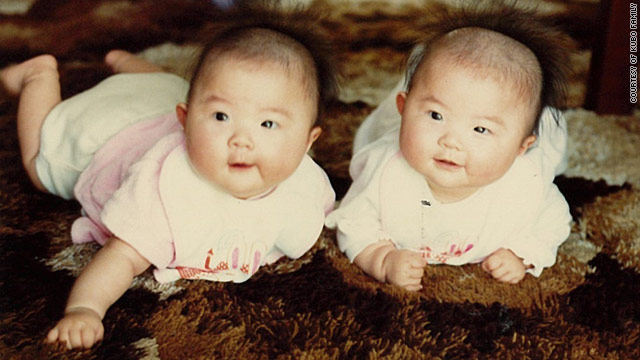Their lives, though, are on two separate paths, mirroring the power shift that is the economic story in Asia.
Toshiko lives in Tokyo, Japan. She has a graduate degree in art history and longs to work amid the works of the great artists of the classical era of art. Those dreams are shelved, she says, for a job with a steady salary and benefits. She works in a job outside of the field of her choice, logging the typical 14-hour work day expected in Japan. Toshiko doesn't hate her job, but it doesn't exactly inspire her, either.
Despite her lackluster career path, Toshiko says by Japanese standards, she's lucky. Approximately one third of 20-to-30-year olds don't have full-time jobs, according to Japan's Ministry of Internal Affairs and Communications. The ministry also shows the highest rate of unemployment is among people under age 25.
"Japan is a difficult place to live for young people," says Toshiko. "Young people don't have goals. We can't have dreams. Even if we have a dream, there's no way to make it come true."
Toshiko's twin, Fukuko, decided early on that the world offered more in life than what she saw in Japan.
Fukuko decided in high school to study abroad in the UK. She became fluent in English, a key to unlocking the job possibilities with multinational companies overseas.
Like her sister, Fukuko also graduated with a master's degree, but in contemporary art, with an undergraduate in architecture.
At first, she says, she tried to work in Japan. She was employed at a Tokyo-based company when the sub-prime crisis struck the U.S. and unraveled into the Lehman Shock in Japan. The company downsized and bought out employees, including Fukuko.
Fukuko looked around and saw little hope for her young life in the mature economy of Japan. "I think people are getting less optimistic about life," says Fukuko. "You feel this kind of depression. People are sort of stuck in this environment where they are just worried about everything, and then work for so many hours. I wasn't feeling happy either, because of all these things around me. I needed to get out of that so I could feel fine."
Without a job or any concrete employment plan, Fukuko took off to Beijing, China. Three days later, she landed an interview and then subsequently was hired by an interior design company.
That would be impossible in Japan, says Fukuko, pointing out that Japanese companies hire according to rigid rules and entrance exams, so landing an interview quickly is out of the question.
Her current job in Beijing, she says, is challenging, rewarding and interesting. Her new country, says Fukuko, is where her future lies.
"You can feel a lot of optimistic, energetic (feelings) here. People are so optimistic. It's really, really powerful because everyone knows that the economy is doing really well. Japan's the opposite. It's sort of going down."
When asked to share advice with young people in Japan, Fukuko says, "I think people should go out."
Should they leave Japan? Fukuko quickly responds, "I think so. I think so."
Economist Kathy Matsui, Chief Japan Strategist for Goldman Sachs Japan, says policymakers need to start addressing what she calls the country's staggering demographic tsunami.
"The number of young people supporting one elderly is going to be 2-to-1 in the very near future," she says, citing Japanese governmental figures that show 40 percent of the population will be over the age of 65 by 2050. Matsui says the government must address the demographic problem from a number of avenues, including making the country hospitable to the younger generations and to women, who are often unaddressed by current social policies.
"With the new world, the new normal Japan is facing, can it afford just to say oh, we can't change because we've always done it this way. I think the younger generation, especially, is beginning to question whether those mores are applicable to Japan going forward," says Matsui.
The annual report of statistics on Japanese nationals overseas, a study compiled by Japan's Ministry of Foreign Affairs, shows 10 years ago, approximately 46,000 Japanese lived in China. The latest figures available show the figure now hovers just above 127,000.
The numbers are not dramatic, but reflect a shift in where young people are looking for employment and opportunities.
Ask these twins about their futures, and you'll hear in their response the tide of Asia's economic shift, from the setting sun that is Japan to the rising power of China.
"It'll be worse in 20 to 30 years," says Toshiko from her Tokyo apartment, "but nobody knows what to do about it."
From Beijing, Fukuko agrees with her sister. "I think if I have a choice," says Fukuko. "I would rather not go back (to Japan)."
Source: CNN


No comments:
Post a Comment